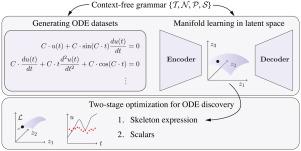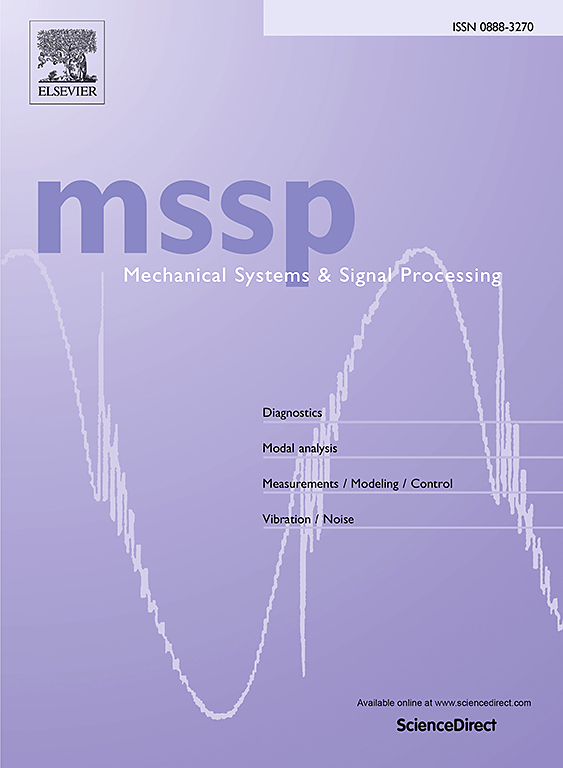基于语法的常微分方程发现
IF 8.9
1区 工程技术
Q1 ENGINEERING, MECHANICAL
引用次数: 0
摘要
历史上,通过动力系统对复杂物理现象的理解和建模推动了科学进步,为预测系统在不同条件下的行为提供了必要的工具。在工程中,动态系统的发现对于工程系统的计算建模、诊断、预测和控制是不可或缺的。结合最近在该领域利用符号回归的力量的努力,我们提出了一个用于端到端发现常微分方程(ODE)的新框架,称为基于语法的ODE发现引擎(GODE)。该方法将形式语法与降维和随机搜索相结合,以有效地导航高维组合空间。语法用于注入领域知识并提供结构,约束和指导候选表达式的搜索。事实证明,与最先进的基于变压器的模型相比,GODE具有更高的样本和参数效率,并且比遗传编程和其他基于语法的方法发现更准确和更简洁的ODE表达式,特别是对于复杂的推理任务,例如结构动力学的发现。因此,我们介绍了一个可以在动态发现任务中发挥催化作用的工具,包括建模、系统识别和监控应用程序。本文章由计算机程序翻译,如有差异,请以英文原文为准。

Grammar-based ordinary differential equation discovery
The understanding and modeling of complex physical phenomena through dynamical systems has historically driven scientific progress, providing essential tools for predicting system behavior under diverse conditions over time. In engineering, the discovery of dynamical systems is indispensable for computational modeling, diagnostics, prognostics, and control of engineered systems. Joining recent efforts that harness the power of symbolic regression in this domain, we propose a novel framework for the end-to-end discovery of ordinary differential equations (ODEs), termed Grammar-based ODE Discovery Engine (GODE). The proposed methodology combines formal grammars with dimensionality reduction and stochastic search for efficiently navigating high-dimensional combinatorial spaces. Grammars serve to inject domain knowledge and provide structure, both constraining and guiding the search for candidate expressions. GODE proves to be more sample- and parameter-efficient than state-of-the-art transformer-based models and to discover more accurate and parsimonious ODE expressions than both genetic programming- and other grammar-based methods, particularly for complex inference tasks, such as the discovery of structural dynamics. Thus, we introduce a tool that could play a catalytic role in dynamics discovery tasks, including modeling, system identification, and monitoring applications.
求助全文
通过发布文献求助,成功后即可免费获取论文全文。
去求助
来源期刊

Mechanical Systems and Signal Processing
工程技术-工程:机械
CiteScore
14.80
自引率
13.10%
发文量
1183
审稿时长
5.4 months
期刊介绍:
Journal Name: Mechanical Systems and Signal Processing (MSSP)
Interdisciplinary Focus:
Mechanical, Aerospace, and Civil Engineering
Purpose:Reporting scientific advancements of the highest quality
Arising from new techniques in sensing, instrumentation, signal processing, modelling, and control of dynamic systems
 求助内容:
求助内容: 应助结果提醒方式:
应助结果提醒方式:


